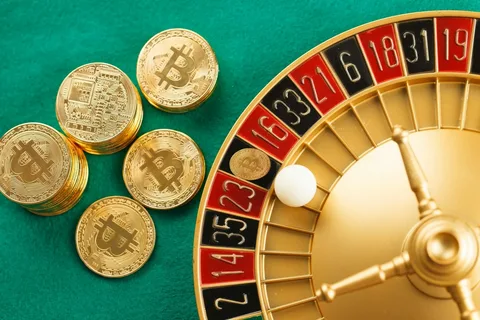The rise of blockchain technology has given birth to a new breed of online gambling platforms known as decentralised gambling sites. Unlike traditional online crypto casinos, these sites operate on blockchain networks using smart contracts, eliminating the need for a central authority to manage bets, payouts, or game fairness. For UK players looking for transparency, privacy, and freedom from traditional regulations such as GamStop, decentralised gambling sites offer a compelling alternative.
What Are Decentralised Gambling Sites?
Decentralised gambling platforms are built on blockchain technology, which means they run on distributed ledgers rather than centralized servers. Smart contracts—self-executing pieces of code on the blockchain—automate game processes and ensure outcomes are fair and tamper-proof. Because no single entity controls the site, players can gamble trustlessly with full visibility into game mechanics and transactions.
Why UK Players Are Turning to Decentralised Gambling
UK online gambling is tightly regulated by the UK Gambling Commission (UKGC), which enforces strict rules on identity verification, self-exclusion (GamStop), and payment methods. While these protections help many players, others seek platforms that offer:
- Increased privacy: Decentralised sites often do not require lengthy KYC checks.
- Freedom from GamStop: These platforms typically operate outside the UKGC’s jurisdiction.
- Provably fair gaming: Smart contracts enable players to independently verify the fairness of each bet.
- Instant payouts: Blockchain transactions can process deposits and withdrawals quickly without intermediaries.
- Ownership and control: Players retain control over their funds via personal wallets, rather than trusting a centralized operator.
Popular Blockchain Networks for Decentralised Gambling
Many decentralised gambling sites serving UK players operate on popular blockchain platforms such as:
- Ethereum (ETH): The largest smart contract platform, hosting numerous decentralized applications (dApps).
- Binance Smart Chain (BSC): Known for lower transaction fees and faster processing times.
- Solana (SOL): Offers high-speed and low-cost transactions, gaining popularity in the gambling space.
- Polygon (MATIC): A layer-2 scaling solution for Ethereum, offering cheaper and faster transactions.
Common Games on Decentralised Gambling Sites
Decentralised platforms typically offer a range of games including:
- Dice and crash games: Simple, fast-paced games popular for provable fairness.
- Slots and lotteries: Increasingly available with blockchain-based randomness.
- Poker and card games: With transparent rules enforced by smart contracts.
- Sports betting: Some sites provide decentralized sports markets with AI-enhanced odds.
How UK Players Access Decentralised Gambling Sites
To participate, UK players usually:
- Set up a crypto wallet like MetaMask, Trust Wallet, or Coinbase Wallet.
- Purchase cryptocurrency (ETH, BNB, SOL, or stablecoins) on an exchange.
- Connect their wallet to the decentralised gambling site via a web3-enabled browser.
- Place bets directly through smart contracts, which handle game logic and payouts.
- Withdraw winnings instantly to their wallet without intermediaries.
Benefits and Challenges
Benefits:
- Full transparency and auditability of games
- Enhanced privacy and anonymity
- Faster and often cheaper transactions
- Resistance to censorship and shutdown
Challenges:
- Blockchain transaction fees (gas) can be high during network congestion
- User experience and game variety may be more limited compared to traditional casinos
- Lack of traditional player protections and responsible gambling tools
- Regulatory uncertainty in the UK market
The Future of Decentralised Gambling in the UK
As blockchain technology matures and becomes more user-friendly, decentralised gambling platforms are expected to grow in popularity among UK players seeking alternatives to conventional sites. Improvements in scalability and cross-chain compatibility will reduce costs and enhance gameplay, while emerging regulatory frameworks may provide clearer guidance without stifling innovation.
Final Thoughts
Decentralised gambling sites offer UK players a transparent, fair, and autonomous way to enjoy online betting and casino games outside traditional regulatory constraints. By leveraging blockchain’s trustless nature and smart contracts, these platforms empower users with control over their funds and game outcomes. While challenges remain, decentralised gambling represents a significant shift toward more open and player-centric online gaming experiences.



